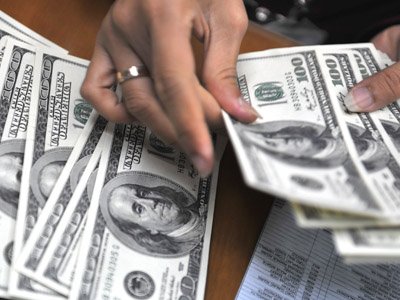
The US economic growth slowed in the second quarter to an annualized pace of 1.5%, as consumer spending eased.
But growth in the first three months of the year was revised up to 2% from a previous estimate of 1.9%, the Commerce Department said.
Previous data was also revised to show the economy shrank by less during the 2007-9 recession than thought.
Despite the slowdown, the second quarter growth figures were better than expected and US stocks rallied sharply.
The main Dow Jones index closed up 188 points, or 1.5%, at 13,076, its highest level since early May.
A joint statement from French President Francois Hollande and German Chancellor Angela Merkel reasserting their commitment to preserving the euro also helped to push Wall Street higher.

The Commerce Department’s latest figures showed the US economy shrank by 4.7% from the start of the recession in 2007 until it ended in 2009.
It had earlier been thought the economy contracted by 5.1% over that period.
Separately, in its twice-yearly review, the White House revised down its forecast for growth in 2012 to 2.3% from 2.7%, and in 2013 to 2.7% from 3%.
“The economy continues to face serious headwinds that have dampened growth and limited gains in employment,” the report said.
The 1.5% annual pace in the second quarter is equivalent to 0.4% quarter-on-quarter growth.
The Commerce Department said the slowdown reflected weaker consumer spending, which grew by 1.5% in the second quarter, compared with 2.4% growth seen in the first quarter.
It also cited an acceleration in imports for the slowdown in growth.
But it said there that these were partly offset by an upturn in private inventory investment, a smaller decrease in federal government spending, and an acceleration in exports.
Exports of goods and services increased by 5.3% in the second quarter, up from 4.4% in the first three months.
Peter Cardillo, chief market economist at Rockwell Global Capital, said the headline growth number was “a bit better-than-expected, but still the consumption is weak”.
“If the economic data next week continues [to be weak], then probably the market can keep their hopes up that [the] Fed would eventually resort to more stimulus.”
Last month, the US Federal Reserve cut its forecast for economic growth in 2012 to 2.4% from 2.9%.